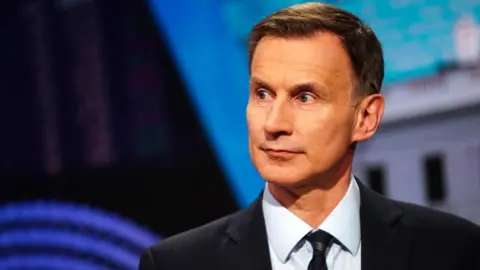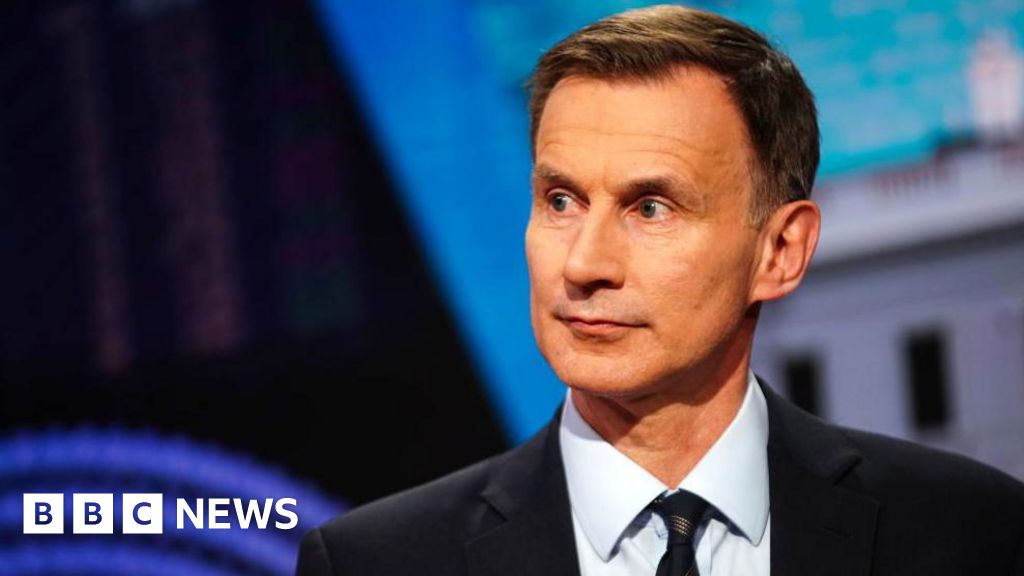 Getty Images
Getty ImagesA row has broken out between the UK’s financial watchdog and former Conservative chancellor Jeremy Hunt over a review into the so-called £22bn “black hole” in the public finances Labour claims it has inherited.
Rachel Reeves, the chancellor, is expected to raise several taxes in her Budget on Wednesday to cover the claimed shortfall.
But Hunt says a report to be released on the same day by the Office for Budget Responsibility (OBR), which is independent of the government, will criticise his party and help make the case for Labour’s tax rises.
Richard Hughes, boss of the OBR, defended the decision to publish the report on Budget day, and told Hunt it would not include “decisions of ministers”.
Labour is gearing up for its biggest week since it was elected in July, as Reeves delivers the party’s first Budget in almost 15 years.
The OBR will publish its assessment of the chancellor’s economic policies and also release forecasts of their impact on the UK economy over the next five years.
But it is also preparing to release an additional report, commissioned earlier this year, on the “adequacy of information” supplied to it by the previous Tory government.
Hunt, a supporter of the OBR, consulted it to provide credibility for his own spending plans, but he has vented fury at the watchdog for planning to release the review into the assurances it was provided during his tenure in the Treasury.
Hunt said on Friday the planned publication date was a “significant concern” and would be seen as a “political intervention”.
“I do not believe publishing a review with criticisms of the main opposition party on the day of a Budget is consistent with political impartiality,” he said in a letter.
The former chancellor said he was concerned the timing was designed to make the case that Budget tax rises were caused by a shortfall in the spending forecasts, that was not communicated to the OBR at the time.
Last week, Reeves said the claimed £22bn “hole” in the public finances was one of the reasons for tax rises and added the OBR would be publishing its review on “how that was allowed to happen”. The Treasury sees this as an important sub-plot to the main Budget narrative.
Hunt also hit out at the OBR for not asking for his views, or letting him see the report before publication.
On Sunday, the OBR responded to the former chancellor, saying the review was about the institutional relationship with the Treasury, not the conduct or decisions of ministers.
It also said that after advice from Cabinet Office, and concerns about market sensitivity, it was not “necessary or appropriate” to provide Hunt with advanced sight.
The OBR works closely with the Treasury, and its judgements on whether the chancellors’ plans are sound is important to financial investors and to Reeves, who has said she wants to borrow money to invest in big infrastructure projects.
Former prime minister Liz Truss and her chancellor Kwasi Kwarteng declined the offer of an OBR forecast ahead of their mini-Budget two years ago, which led to turmoil in the UK economy.



